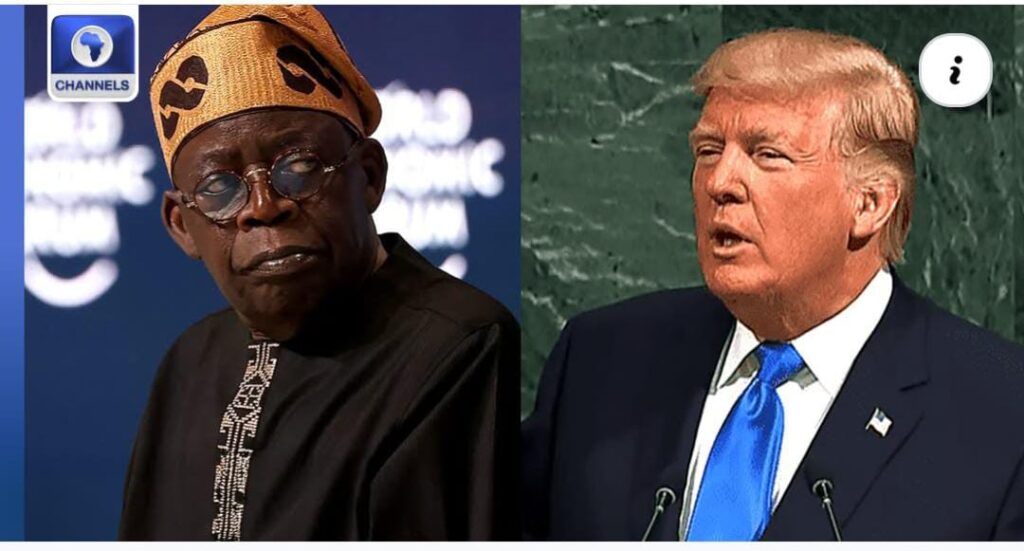
U.S. Designates Nigeria as Country of Particular Concern: Absence of Ambassadors Under Tinubu Amplifies the Impact
By Ik Ogbonna, anipr, fcai, MPhil,
In a move that has sent ripples through international relations, the United States under President Donald Trump has redesignated Nigeria as a “Country of Particular Concern” (CPC) for severe violations of religious freedom. This decision, announced on October 31, 2025, highlights ongoing concerns about the persecution of Christians in Africa’s most populous nation, potentially opening the door to economic sanctions and further straining bilateral ties. The timing is particularly stark given Nigeria’s prolonged absence of appointed ambassadors worldwide—a situation stemming from President Bola Tinubu’s administration, which has left diplomatic posts vacant for over two years. This vacuum may have contributed to Nigeria’s inability to effectively lobby against or mitigate such a designation.
Understanding the CPC Designation
The CPC label is a formal classification by the U.S. State Department under the International Religious Freedom Act of 1998. It targets countries where governments engage in or tolerate “particularly severe violations of religious freedom,” such as systematic torture, prolonged detention without charges, or disappearances based on faith. Nigeria was first added to this list in 2020 during Trump’s previous term, citing attacks by groups like Boko Haram and Fulani militants on Christian communities. It was removed in 2021 under the Biden administration, a decision criticized by religious freedom advocates.
The 2025 redesignation renews focus on what Trump described as an “existential threat” to Christians in Nigeria, amid reports of mass murders, kidnappings, and displacement by radical Islamist groups. The U.S. Commission on International Religious Freedom (USCIRF) has long recommended this status, pointing to Nigeria’s failure to address violence since 2009. Nigerian officials have vowed to combat extremism in response, but critics argue that domestic instability, including economic woes and security challenges, has exacerbated the issue.
This move could lead to targeted sanctions on Nigerian officials or entities involved in religious persecution, affecting trade, aid, and investment in Africa’s top oil producer. It also aligns with broader U.S. policy shifts under Trump, emphasizing religious liberty as a foreign policy priority.
The Diplomatic Drought Under President Tinubu
President Bola Tinubu, who assumed office in May 2023, recalled all 109 Nigerian ambassadors—both career diplomats and political appointees—in September of that year, citing a need to realign foreign policy. The envoys were instructed to return by October 31, 2023, leaving over 100 diplomatic missions, including embassies, high commissions, and consulates, without heads.
As of November 1, 2025, no new ambassadors have been appointed or confirmed by the Nigerian Senate, marking an unprecedented two-year gap in diplomatic representation. Foreign Minister Yusuf Tuggar attributed the delay to Tinubu’s focus on economic reforms and other priorities, though vetting processes reportedly began as early as March 2025. Lists of potential nominees circulated in late 2024, but none materialized into formal appointments.
The absence of Ambassadors at our diplomatic missions has fueled diplomatic tensions, with missions relying on chargé d’affaires or junior staff to handle affairs. Critics, including opposition figures and analysts, have called it a governance failure, arguing it hampers Nigeria’s global influence at a critical time.
Linking the Designation to Nigeria’s Diplomatic Vacuum
The CPC designation underscores how Nigeria’s lack of ambassadors may have weakened its position on the international stage. Without a full ambassador in Washington, D.C., Nigeria has limited capacity to engage in high-level lobbying or backchannel diplomacy to counter narratives of religious persecution. Diplomatic experts note that ambassadors play a crucial role in building alliances, providing intelligence, and advocating for their country’s interests—roles that interim staff cannot fully replicate.
In the lead-up to the redesignation, USCIRF and U.S. congressional resolutions pushed for the CPC label, with little visible pushback from Nigerian representatives. The void has likely contributed to a perception of disengagement, allowing advocacy groups focused on Christian persecution to dominate the discourse unchallenged. Furthermore, with no envoys in key multilateral forums like the UN, Nigeria’s ability to rally support from allies in Africa or the Global South has been diminished. This situation exacerbates existing challenges, including economic isolation and security cooperation. Potential U.S. sanctions could worsen Nigeria’s forex shortages and inflation, issues Tinubu’s administration is already grappling with.
Broader Implications and the Path Forward
The CPC tag places Nigeria alongside nations like China, Iran, and North Korea, potentially deterring foreign investment and complicating visa processes for Nigerians. For Tinubu’s government, it serves as a wake-up call to address internal religious tensions and expedite diplomatic appointments.
To mitigate the fallout, experts recommend swift ambassadorial nominations, enhanced security measures against extremist groups, and proactive engagement with the U.S. on religious freedom issues. As Nigeria navigates this designation, restoring its diplomatic corps could be key to rebuilding trust and influence abroad.
In an era of global interconnectedness, the interplay between domestic policy delays and international perceptions highlights the high stakes of diplomatic inertia.
Ik Ogbonna is a Media/Public Relations consultant. +2348037203559


